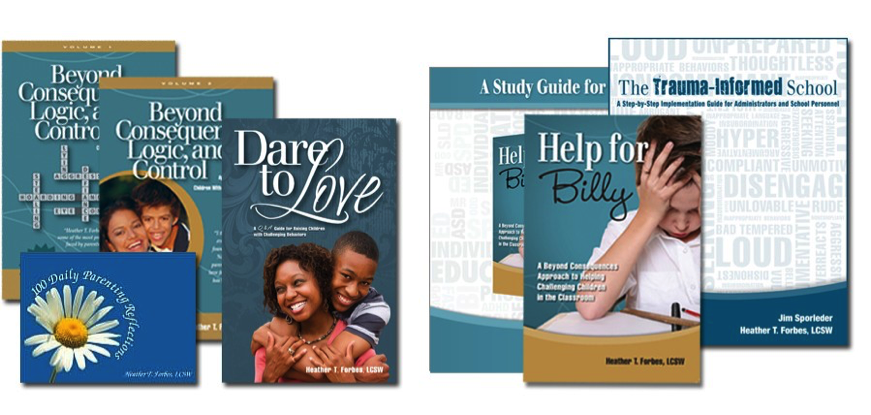- This event has passed.
Parent Training with Heather Forbes
February 25, 2017 @ 9:00 am - 1:00 pm
[vc_row][vc_column][vc_column_text]
Understanding the Dysregulated Child at Home and School
We often underestimate the impact of early life experiences on a child’s development. Unpredictable, unstructured, and emotionally or physically hurtful experiences can create heightened states of autonomic arousal, anxiety, depression, mood changes, irritability, agitation, non-reality thinking, and a general pattern of disorganized behaviors. The typical demands placed on children, at home and within the school classroom, overwhelm children to the point they decompensate and exhaust their windows of stress tolerances. The result is resistant, difficult, and socially inappropriate behaviors. Effective and loving solutions will be given to help participants address issues at home such as stopping sibling rivalry, disrespect, disobedience, and more. Additionally, solutions for helping our children return back to the love of learning in the classroom will be discussed. Emotionally intensive role-plays will help participants understand the difference between helping a child “heal” as opposed to simply getting a child to “behave.” This powerful presentation will leave the participants saying, “Now I get it!”
Cost: $50 per person / $80 per couple
Mail check to Help One Child (858 University Ave. Los Altos, CA 94024)
or pay via the PayPal link below
CEU (Continuing Education Unit): 4 hours for $20.00
Foster Parent Certificate of Hours available.
Childcare available with advance reservation and payment.
Learning Objectives:
Participants will:
- Understand the need to broaden traditional and cultural disciplinary beliefs in order to understand behavior.
- Be able to identify the type of fear, feeling of being overwhelmed, and/or the stress that causes a child to act out.
- Understand the impact of early childhood trauma on the child’s developing brain and nervous system.
- Understand the nature of survival mode and the impact it has on the brain and body system, for both the child and the parent.
- Be able to comprehend what it means to be regulated or dysregulated.
- Value the importance of regulation and relationship over the task at hand or the outcome.
- Understand the concept of “window of stress tolerance” and how to help children expand these windows.
- Learn at least three (3) techniques to de-escalate children’s behaviors.
About the Presenter:
 Heather T. Forbes, LCSW is the founder of the Beyond Consequences Institute. Forbes has worked in the field of trauma and healing since 1999. She is an internationally published author on the topics of raising children with difficult and severe behaviors, the impact of trauma on the developing child, adoptive motherhood, and self-development. Coming from a family of educators, Forbes has a heart for children in the classroom and for finding ways to teach the child that seems “unteachable.” Her signature style is to bridge the gap between scientific research and real-life application to equip parents, educators, and therapists with practical and effective tools. Much of her experience and insight on understanding trauma, disruptive behaviors, and adoption-related issues comes from her direct mothering experience of her two adopted children.[/vc_column_text][vc_tta_accordion active_section=”” collapsible_all=”true”][vc_tta_section title=”Books by Forbes” tab_id=”books-by-forbes”][vc_column_text]
Heather T. Forbes, LCSW is the founder of the Beyond Consequences Institute. Forbes has worked in the field of trauma and healing since 1999. She is an internationally published author on the topics of raising children with difficult and severe behaviors, the impact of trauma on the developing child, adoptive motherhood, and self-development. Coming from a family of educators, Forbes has a heart for children in the classroom and for finding ways to teach the child that seems “unteachable.” Her signature style is to bridge the gap between scientific research and real-life application to equip parents, educators, and therapists with practical and effective tools. Much of her experience and insight on understanding trauma, disruptive behaviors, and adoption-related issues comes from her direct mothering experience of her two adopted children.[/vc_column_text][vc_tta_accordion active_section=”” collapsible_all=”true”][vc_tta_section title=”Books by Forbes” tab_id=”books-by-forbes”][vc_column_text]
- The Trauma-Informed School: A Step-by-Step Implementation Guide for Administrators and School Personnel (co-authored with Jim Sporleder)
- Help for Billy: A Beyond Consequences Approach for Helping Challenging Children in the Classroom
- A Study Guide for Help for Billy: A Chapter-By-Chapter Workbook for Teachers (co-authored with Jim Sporleder)
- Beyond Consequences, Logic, and Control: A Love Based Approach to Helping Children With Severe Behaviors, Volume 1 (English, Spanish, and Russian versions)
- Beyond Consequences, Logic, and Control: A Love Based Approach to Helping Children With Severe Behaviors, Volume 2
- Dare to Love: The Art of Merging Science and Love Into Parenting Children with Difficult Behaviors
- 100 Daily Parenting Reflections
[/vc_column_text][/vc_tta_section][/vc_tta_accordion][vc_column_text]
Sign up to attend the event:
Please click “Submit” above before continuing to PayPal.
[/vc_column_text][/vc_column][/vc_row][vc_row][vc_column][/vc_column][/vc_row]




